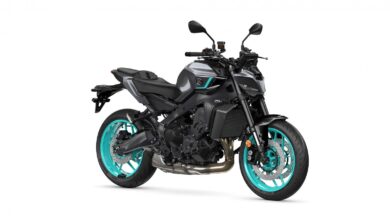May 14, 2007 – When and what to centralize at multistore spots
By Steve Bauer
Managing Editor
At some point every multi-point dealer principal must ask themselves the following question: at what point should I centralize my business, and which parts require attention first?
The answer might seem simple to some, but for many it’s a puzzling and oftentimes frustrating topic. Whether the issue is centralizing a computer network, human resources, payroll or even phone systems, what works for some isn’t necessarily a perfect fit for others.
When to centralize, and what first?
Knowing when to centralize your business is a key component to your dealership’s long-term success. According to Sam Dantzler, president of the Retail Powersports Management Group, once you’ve acquired your third store it’s time to look into streamlining some of your processes.
“You really need to address the topic of centralization at three stores,” Dantzler said. “Because I think going to two stores isn’t a little harder than having one store, it’s twice as hard. And when you go to three stores, it’s three times or four times as hard. It just continues to be exponentially harder if you don’t start centralizing some of these pieces of your business. It’s hard for the stores to run identical to each other. For successful multi-point dealers, their ability to centralize everything stems from the fact that each store operates systematically identically to the other store. Usually with two stores that are running so independently from each other, you don’t have the mindset and process that centralization makes sense. When you go to three stores you don’t have a choice, things will start becoming overwhelming.”
Jim Whalley, owner of HK Motorsports in New Hampshire, says that the sooner you can centralize, the more efficient your business will become.
“We have three stores, but chose to start centralizing parts of our business after the second store based on the cost and the efficiencies of being able to communicate with each other electronically, like inventory,” he said. “You have to make sure you have an office manager or controller who really understands the business end and can afford the time to take care of two or more stores, and the issues those stores might have. Obviously the advantages are the buying power, the efficiency and the centralization for tax purposes. If you don’t have the right person to oversee it, however, or don’t have the right communication between the stores, especially with the server/software part of it, it can be extremely challenging.”
As far as which process should be centralized first, Dantzler says that accounting should be a top priority.
“I’d still want to finalize deals at all the stores,” he said, “but once deals are finalized, processing, getting the money, etc., can all be centralized through a main accounting office, otherwise you have three expenses as opposed to just one.”
Dantzler also suggests considering centralizing the creation and maintenance of your dealership’s Web sites, along with crash jobs.
“Crash jobs can certainly be taken in at the dealership level but should be switched over to the central level,” he said. “It gets the crash job out of a customer’s eyesight, which you’ll be able to do if you have central location to bring all your jobs to.”
Computer Concerns
Once the decision has been made to centralize a group of dealerships, one of the biggest questions multi-point dealers face is whether their computer systems should be centralized on one server. Having all stores working under one server can be a huge advantage in terms of saving time and money on accounting and purchasing, but it also can have disastrous results if your provider or server isn’t reliable.
“When we purchased our second store we decided it was the right time to centralize, and that the first thing we’d need to centralize was the computer network,” said Chris Watts, owner of America’s Powersports in Tennessee, which now encompasses three stores. “Early on, we had a couple problems with our line provider, where a line would get cut and the satellite store would go down and stay down for a number of hours. We then switched to another provider and went to T1 lines, and we haven’t had an issue since then because they can reroute those lines if one goes down. We did have the server go down last year, and that was a catastrophe. We were down for about a day, so that’s the downside to having only one server.”
After that incident, Watts decided to have a second server installed to provide some peace of mind.
“We have a backup server now so if something does happen we can switch over in less than an hour, he said. “But without a doubt the benefits outweigh the negatives, just by payroll costs alone it’s worth it to centralize your computer network.”
Other dealers, such as Whalley, struggle over whether it’s best if one store remains off the main network, even if you try to protect yourself by adding additional servers.
“We originally had two stores and then bought a competitor out, and built a new store about three years ago,” he said. “We went from a Unix-based system to a Windows-based system with ADP Lightspeed and placed our new store and our largest store on one network. So now we’re faced with the decision to either centralize all three stores with one Lightspeed system or have one store stay as a stand-alone. One of the reasons is that if you have a problem with the main store where the server is held at, instead of affecting two stores, now you’re affecting all of them. So that’s one of our concerns. And if I had to give you an answer today, I’d say I’m leaning against placing that third store on the network. The IT part of the business is what I consider to be the trickiest when it comes to deciding whether to centralize it or not.”
Does Distance Dictate?
Another question dealers must address is whether stores that are far apart from each other, or in some cases in different states, run more effectively independent from one another?
“I will always have my stores runs independently of each other,” said Russell Haehn, CEO of Chicago Cycle, which has two stores, one in Illinois and another in Ohio. “We don’t have a central office or computer network and I don’t agree with the philosophy that you should.
“The reason I don’t agree with it is because you can’t find any efficiencies, in my opinion. You still have to deal with the title processing and other issues if your dealerships are located far apart or in different states, like mine are. In my case, I’m not going to save any money having a centralized computer network or by shipping things to a central office.”
Haehn does admit that centralizing can be effective in certain cases.
“There are scenarios where it can work. For example if the volume of the outlying satellite stores is small enough that they can’t afford to hire a person to do that work. I only deal with stores that do 3,000 units per year or more, so each of them are independent and free-standing from that standpoint. Each store has their own IT person, human resources department, etc.”
Watts agrees with Haehn that distance and multi-state regulations might warrant keeping stores independent of one another.
“If I was to add more stores, depending on their proximity to the main store, I probably wouldn’t centralize tag and title and contract receivables. The farther away the stores are from each other and if they’re in different states, then I definitely wouldn’t centralize those two aspects of my business.”
Solid System, Reliable Staff
Dealers who have been successful at centralizing their business say that having a dedicated, reliable staff is key to the success of your growth.
“Make sure you’ve got the support in place before you make the decision to centralize anything, in terms of having a strong office team and an in-house accountant,” Watts said. “And you need to have confidence that they can handle that extra load, because you’ll be leaning heavily on them.”
Dantzler says the hallmark of any successful multi-point dealer is that your systems have to stand up to the high turnover you’re going to have in your business.
“If I could give one piece of advice to dealers looking to centralize their businesses, it’s that dealerships must run on systems, not people,” he said. “It’s easier to put a person into a system than a system into a person. So if the dealership is operating off systems, with the turnover that we have in this industry, if you want that dealership to be successful, you can’t be dependent on the person in a chair. You have to be dependent on the systems that run that department.”




